Picture this: it’s a chilly Sunday evening, and your kitchen tap decides to stage a full-blown waterworks protest. You’re scrambling for a plumber’s number, but one question stops you cold – how much do plumbers charge per hour in the UK? Honestly, I’ve been there, and it’s not just about fixing a leak; it’s about knowing what’s coming out of your wallet.
In 2025, plumbing costs can vary wildly depending on where you live, the job’s complexity, and whether it’s an emergency plumber you’re calling out. Let’s break it down so you can tackle that plumbing issue with confidence – and maybe even save a few quid.
Here’s the deal: understanding the costs of hiring a plumber in Birmingham isn’t just about hourly rates. It’s about what’s included, what drives those prices up, and how to find a good plumber without breaking the bank. Whether it’s a dripping tap or a full-on bathroom overhaul, this guide has you covered with everything from national averages to tips for keeping plumbing costs in check.
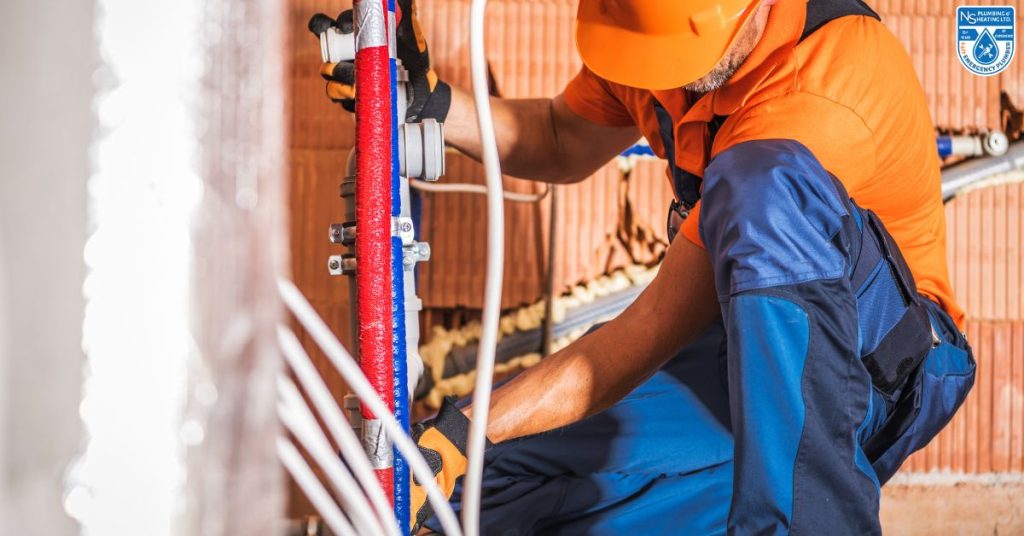
Plumber working on pipes in London
What’s the average cost of a professional plumbing service per hour in the UK?
So, how much do plumbers charge per hour in the UK in 2025? Based on the latest insights, the average hourly rate for a plumber hovers between £40 and £60 per hour across the country. But don’t take that as gospel everywhere – location, experience, and the type of plumbing job can nudge that number up or down.
- National average: Most plumbers charge around £50 per hour for standard jobs like fixing leaks or installing taps.
- Smaller towns and rural areas: You might find a local plumber charging as low as £30 to £40 per hour, especially for straightforward plumbing repairs.
- Big cities like London: Brace yourself – because of increased demand and rising living expenses, plumbers in London frequently charge between £60 and £100 per hour.
Why the range? Well, a plumber in London dealing with sky-high rent and traffic headaches naturally charges more than one in, say, Cornwall. Plus, an experienced plumber with years of know-how might command a premium compared to someone just starting out.
Regional Differences in Plumber Average Hourly Rates
Where you live plays a massive role in the plumber’s hourly rate UK homeowners can expect to pay. Here’s a quick rundown of how rates typically range across the UK:
- London and South East: £60–£100 per hour. London plumbers often face higher overheads, so expect to pay a plumber on the higher end here.
- Midlands: £40–£55 per hour. Places like Birmingham or Nottingham offer a middle ground for plumbing prices.
- North of England: £35–£50 per hour. Cities like Manchester and Leeds tend to be a bit cheaper.
- Scotland and Wales: £30–£50 per hour, though rural areas might dip lower.
- Northern Ireland: £25–£45 per hour, often the lowest in the UK.
Rural vs Urban Differences
The urban-rural divide significantly impacts plumber prices UK-wide:
| Region Type | Average Hourly Rate | Call-Out Fee | Travel Surcharge |
| Major City | £55-£85 | £70-£100 | Minimal/None |
| Suburban | £50-£75 | £60-£90 | £10-£30 |
| Rural | £45-£70 | £50-£80 | £20-£50+ |
Curious about why these differences exist? It’s all about supply and demand, plus local economic factors. In London, plumbers can quickly book out due to the sheer number of homes and businesses, while rural plumbers might have less competition but also fewer clients.
Plumbing Prices Per Hour UK: What’s Included?
When you’re quoted plumbing prices per hour UK-wide, you might wonder what you’re actually paying for. Here’s what’s typically rolled into that hourly rate for most plumbers:
- Labour costs: The plumber’s time and expertise tackling your plumbing needs.
- Travel time: Many plumbers include travel within a certain radius, but some may charge extra for longer trips.
- Basic tools and equipment: Standard gear for common plumbing jobs like fixing a tap or unclogging a drain, which may incur a call out charge.
- VAT: If the plumber is VAT-registered, expect an extra 20% unless they’ve already baked it into the quote.
What’s not included? Materials (like pipes or fittings) and any specialised equipment for complex plumbing tasks often come as an additional cost. For example, replacing a radiator might mean £50 per hour for labour, plus £20–£100 for the radiator itself.
Some plumbers also have a minimum charge – say, one hour’s work – even if the job takes 20 minutes. You’ll want to know this upfront to avoid surprises.
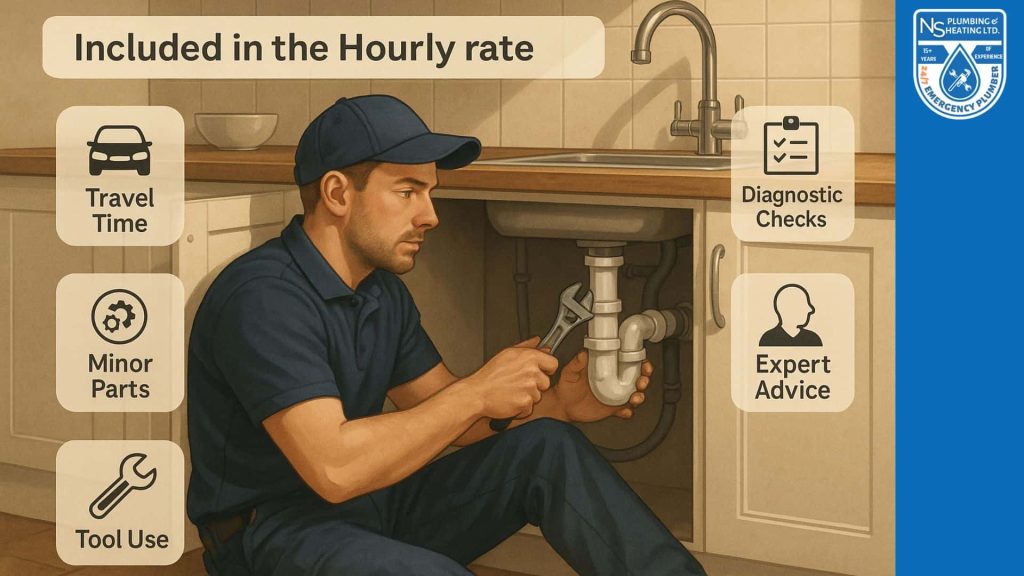
UK plumber repairing sink, hourly rates explained
Emergency Plumber Hourly Rate UK: What to Expect
Knowing how much an emergency plumber will cost is essential when a tragedy hits.
24/7 Call-Out Fees and Hourly Premiums
The emergency plumber hourly rate in 2025 typically ranges from £80 to £120, with additional premiums based on:
- Time of day: Late night calls (10pm-7am) can reach £150-£200/hour
- Day of week: Weekend emergencies typically cost 50-100% more than weekday rates
- Holiday periods: Bank holidays and Christmas can see rates double or triple
Most emergency plumbers charge a call-out fee of £90-£150 before any work begins, which may or may not be deducted from the final bill.
Emergency vs Non-Emergency specific plumbing jobs Scenarios
Understanding what constitutes a genuine plumbing emergency can save you significant money:
True Emergencies (Worth the Premium):
- Burst pipes causing active flooding
- Complete boiler failure during cold weather
- Sewage backups or major blockages
- Gas leaks (contact emergency gas service immediately)
- No water supply to the entire property
Non-Emergencies (Can Usually Wait for Standard Rates):
- Dripping taps
- Minor leaks contained in a sink/basin
- Single radiator not working
- Low water pressure
- Intermittent boiler issues
For borderline cases, I recommend taking temporary measures (like turning off the water at the mains) and calling a few plumbers to compare emergency rates before proceeding.
Money-Saving Tip: Some plumbing companies offer emergency response plans (£10-20/month) that provide priority service and reduced emergency rates. These can be worthwhile if you have an older plumbing system or previous emergency issues.
How Much Does a Plumber Cost for Different Jobs?
Not all plumbing jobs are priced the same. The cost of hiring a plumber depends heavily on the task. Here’s a breakdown of what you might expect to pay a plumber for common plumbing jobs in 2025, based on hourly rates and job complexity:
Fixing a Leak
| Job Type | Average Cost | Typical Duration | Factors Affecting Cost |
| Dripping tap | £70-£120 | 30-60 mins | Tap type, accessibility |
| Pipe leak (accessible) | £100-£180 | 1-2 hours | Pipe material, extent of damage |
| Pipe leak (concealed) | £200-£400 | 2-4 hours | Location, required remedial work |
Leaks behind walls or under floors naturally cost more due to the additional work required to access and repair the problem, plus any decorative restoration needed afterward.
Unblocking Drains
| Job Type | Average Cost | Typical Duration | Factors Affecting Cost |
| Sink/bath blockage | £70-£130 | 30-90 mins | Severity, accessibility |
| Toilet blockage | £80-£150 | 30-90 mins | Complexity, toilet type |
| External drain blockage | £120-£250 | 1-3 hours | Depth, access, equipment needed |
Most blockages are straightforward, but severe or recurring issues might require specialised equipment like CCTV drain surveys (£150-£300) to identify underlying problems.
Installing Taps, Toilets, or Showers
| Job Type | Average Cost | Typical Duration | Factors Affecting Cost |
| Tap replacement | £80-£150 | 1-2 hours | Tap type, accessibility |
| Toilet installation | £150-£300 | 2-3 hours | Toilet type, modifications needed |
| Electric shower installation | £300-£500 | 3-5 hours | Power requirements, tiling work |
| Mixer shower installation | £200-£400 | 2-4 hours | Plumbing configuration, access |
These costs typically exclude the fixtures themselves, which can range from budget options to premium models costing several hundred pounds.
Boiler Repairs & Maintenance
| Job Type | Average Cost | Typical Duration | Factors Affecting Cost |
| Annual boiler service | £80-£120 | 30-60 mins | Boiler type, age |
| Minor boiler repair | £150-£300 | 1-3 hours | Fault type, parts required |
| Major boiler repair | £300-£600 | 3-6 hours | Complexity, component costs |
| Boiler replacement | £1,800-£4,000 | 1-2 days | Boiler type, system changes |
Boiler work requires Gas Safe registration, which typically commands higher hourly rates than standard plumbing.
Pipe Replacements
| Job Type | Average Cost | Typical Duration | Factors Affecting Cost |
| Replace section of exposed pipe | £100-£200 | 1-2 hours | Pipe material and length |
| Replace concealed pipework | £250-£500+ | 3-6 hours | Access and restoration work |
| Full repipe (small house) | £2,000-£4,000 | 2-4 days | Property size, pipe material |
Pipe replacement costs vary dramatically based on accessibility and the extent of work required. Copper piping typically costs more than plastic alternatives but offers greater durability.
Factors That Affect How Much Plumbers Charge Per Hour in the London
Wondering why one plumber quotes £40 per hour and another £80? Several factors influence the plumber cost guide you’ll encounter:
- Location: As we’ve seen, London plumbing rates are pricier than rural ones.
- Experience: An experienced plumber with certifications (like Gas Safe for heating work) often charges more.
- Job complexity: Simple tap fixes cost less than rewiring a plumbing system.
- Time of day: Emergency services or after-hours work come with higher rates.
- Materials needed: Fancy fittings or hard-to-source parts can bump up the bill.
- Reputation: A professional plumber with glowing reviews might charge a premium for their reliability.
For example, a plumber for your project fixing a basic leak might charge £40 per hour, but one handling a complex plumbing job like a boiler repair could hit £80 per hour or more.
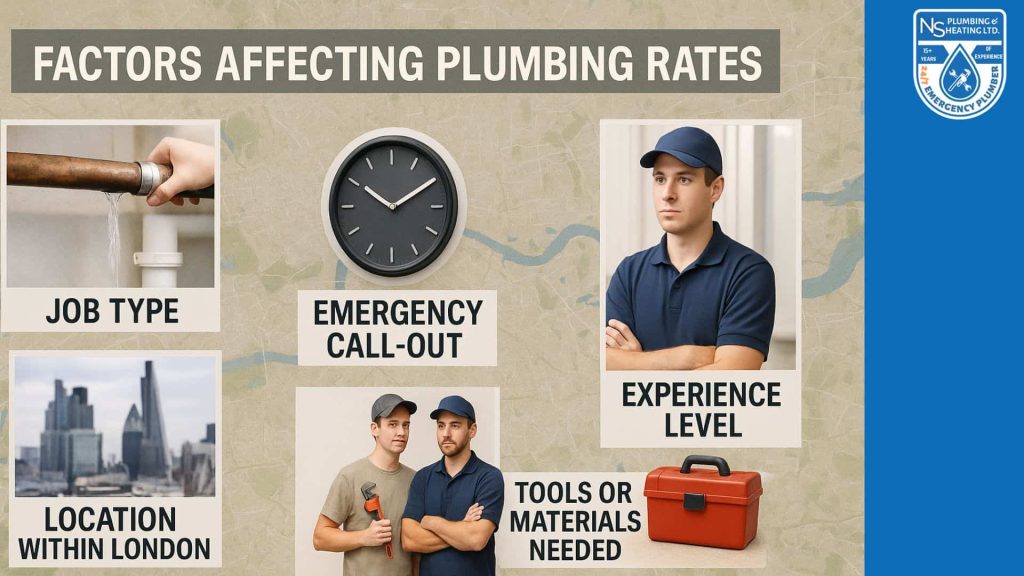
Factors influencing plumbing rates
Hourly Rate vs. Fixed Pricing: Pros and Cons
When hiring a professional plumber in Birmingham, you might face a choice: an hourly rate for a plumber or a fixed quote. Both have upsides and downsides, so let’s weigh them:
Hourly Rate
- Pros:
- Great for small, unpredictable jobs where the plumber may not know the full scope upfront.
- You only pay for the time spent – ideal if the plumber can quickly sort it.
- Cons:
- Costs can spiral if the job takes longer than expected.
- Some plumbers might drag things out (though most are honest!).
Fixed Pricing
- Pros:
- You know the total cost upfront, which helps with budgeting.
- No surprises, even if the plumbing tasks take all day.
- Cons:
- Quotes might include a buffer, so you could pay more for quick jobs.
- Less flexibility if the job changes mid-project.
For common plumbing jobs like installing a tap, hourly rates work fine. But for bigger plumbing projects, a fixed quote can offer more peace of mind.
How to Save Money on Additional Costs In London?
Nobody wants to overpay, right? Here’s how to keep the cost of common plumbing jobs down without skimping on quality:
- Get multiple quotes: Contact several plumbers – three is a good number – to compare rates. Quotes from different plumbers can vary by 20–30%.
- Ask about day rates: For longer jobs, a daily rate (e.g., £350 per day) might beat charging by the hour.
- Tackle emergencies wisely: If it’s not urgent, avoid calling out a plumber at midnight to dodge that emergency plumber cost.
- Do minor prep work: Clear the area around the plumbing issue to save the plumber time.
- Maintain your plumbing: Regular checks can prevent costly repairs down the line.
- Look for deals: Some plumbing solutions come cheaper if you bundle jobs (e.g., fixing a tap and radiator in one visit).
One trick I’ve seen work? Ask if the plumber offers discounts for booking during quieter times, like midweek mornings.
How to Find a Right Plumber in Birmingham, UK?
Understanding how much plumbers charge per hour in Birmingham (UK) is just one factor in selecting the right professional for your job.
Key Questions to Ask Before Hiring
Before committing to any plumber, ask these essential questions:
- Are you Gas Safe registered? (Mandatory for any gas work)
- Do you provide written quotes? (Always get detailed written estimates.)
- What guarantees do you offer on your work? (Look for at least 12 months.)
- Do you have public liability insurance? (Should be at least £1 million)
- How long have you been working as a plumber? (Experience matters.)
- Can you provide references from similar jobs? (Check their track record.)
- Do you charge for quotes? (Many reputable plumbers offer free quotes.)
- What payment methods do you accept? (Be wary of cash-only businesses.)
These questions help establish professionalism and reliability beyond just the plumber prices UK customers are quoted.
Red Flags to Watch Out For Plumbing Issue
Be cautious of plumbers who:
- Provide quotes significantly below the average plumber hourly rate UK standard (often a sign of inexperience or poor workmanship)
- Demand large deposits upfront (more than 25% is unusual for standard jobs)
- Can’t provide references or portfolio examples
- Have limited or suspicious online presence
- Pressure you into immediate decisions
- Offer vague quotes without specifics
- Suggest unnecessary additional work
- Can’t clearly explain what they’re doing and why
Trust your instincts – if something feels off, it’s worth getting a second opinion.
Importance of Gas Safe & CIPHE Accreditation
Professional accreditations are worth paying for:
- Gas Safe Registration: Legally required for any gas work, ensuring proper training and regular assessment
- CIPHE Membership (Chartered Institute of Plumbing and Heating Engineering): Indicates commitment to professional standards and ongoing education
- City & Guilds Qualifications: Demonstrates formal training and technical competence
- Trustmark Approval: Government-endorsed quality scheme
Plumbers with these credentials typically charge 10-20% more than unaccredited competitors, but the peace of mind and quality assurance justify the premium.
Realistic Timelines for Common Plumbing Jobs
How long should a plumbing job take? Knowing this helps you gauge whether the plumber provides fair pricing. Here’s what to expect:
- Tap repair/replacement: 30 minutes to 1 hour.
- Drain unblocking: 1–2 hours, unless it’s a major clog.
- Radiator fitting: 2–4 hours per radiator.
- Shower installation: 3–6 hours, depending on the setup.
- Boiler repair: 2–8 hours, based on the fault.
- Bathroom refit: 2–10 days, depending on the scope.
For complex plumbing like rewiring a home’s pipes, timelines can stretch to weeks. Always ask your plumber for an estimate so you’re not left wondering.
Real Experiences with Plumbers’ Charges
Barbato from Birmingham faced a serious plumbing emergency when a leak developed in her property. Concerned about how much a plumber would cost and the potential call-out charge, she researched plumbing hourly rates in her area before contacting NS Plumbing and Heating.
The plumbing professional from NS Plumbing responded promptly, understanding that rates may vary for emergency situations but prioritising customer comfort. While many plumbers will charge premium rates for urgent repairs, NS Plumbing provided a fair and transparent quote. They explained that while plumbers may charge a day rate for larger jobs, Barbato’s situation required immediate attention from a plumber for a full leak assessment and repair.
I would describe it as efficient and pleasant, Barbato shared about her experience. Unfortunately, there was a serious leak, which made the property less comfortable than we would have liked. However, we were very pleased to see that it was repaired very quickly once the plumber arrived. She was particularly impressed that while plumbers in Birmingham, UK, range widely in response times and quality, NS Plumbing delivered exceptional service when needed most.
Barbato added, “I would be happy to recommend the service to anyone looking for a similar solution,” noting how plumbers can also provide peace of mind through their professionalism and efficiency.
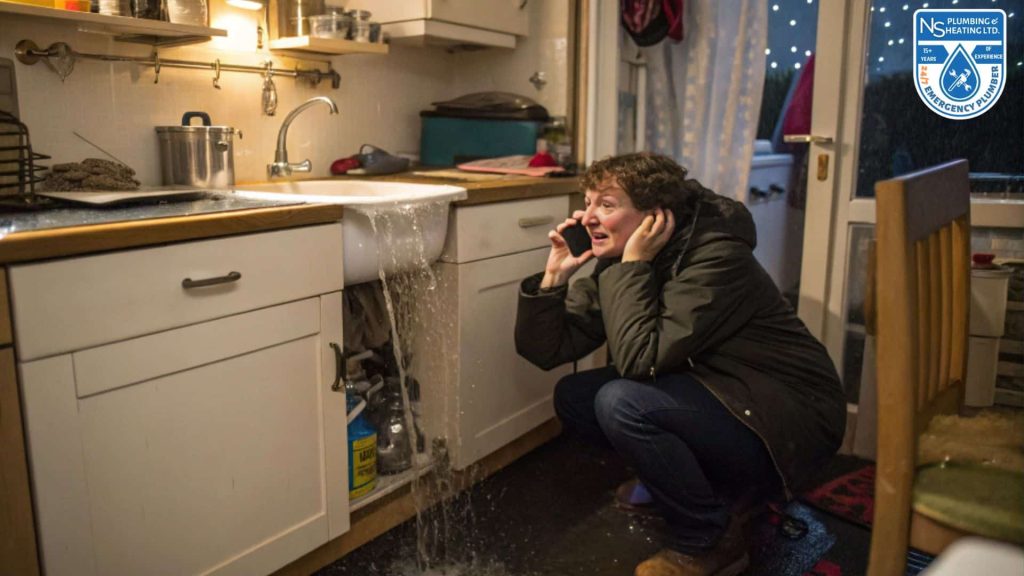
Emergency plumbing call: woman dealing with a severe kitchen leak
FAQs – Plumbing Costs Explained
Why Do the Costs of Common Plumbing Jobs Vary So Much?
The significant variation in how much do plumbers charge per hour in the UK stems from multiple factors:
- Regional economic differences: London rates are typically 30-50% higher than in Northern regions
- Overhead costs: Established companies with offices, staff, and vehicles have higher operating expenses than solo plumbers
- Experience and specialisation: Master plumbers with decades of experience command premium rates
- Time of service: Out-of-hours work naturally costs more
- Job complexity: Simple tasks versus diagnostic challenges
This variation is why getting multiple quotes is so important for larger jobs.
How Long Do Typical Plumbing Jobs Take?
Understanding typical timeframes helps you evaluate quotes:
- Tap replacement: 30-60 minutes
- Toilet installation: 1-2 hours
- Radiator installation: 2-3 hours
- Shower installation: 2-4 hours
- Unblocking drains: 30-90 minutes
- Boiler service: 30-60 minutes
- Boiler replacement: 4-8 hours
If a quote suggests significantly longer timeframes, ask for clarification – there may be complications the plumber has identified that you’re unaware of.
Should I Expect to Pay VAT?
VAT considerations are important when budgeting:
- Sole traders with annual turnover below £85,000 don’t have to charge VAT
- Larger plumbing companies will add 20% VAT to your bill
- Always check whether quotes include or exclude VAT
- Some energy-efficient installations qualify for reduced VAT rates (5%)
This tax difference can make a sole trader appear 20% cheaper than a larger company offering identical service.
What if my plumber works slowly?
If you’re concerned about a plumber taking too long:
- Ask upfront if they charge a fixed price or hourly rate
- Request an estimated completion time before work begins
- Discuss any concerns about pace professionally during the job
- Keep a record of start and finish times
- Consider fixed-price quotes for larger jobs to avoid this issue entirely
Most reputable plumbers work efficiently; their reputation and future business depend on it.
Final Thoughts: Get the Best Value from Your Plumber
Understanding how much plumbers charge per hour in the UK is essential for homeowners and property managers. As we’ve seen throughout this 2025 guide, plumbers typically charge between £45 to £80 per hour depending on location. complexity of the plumbing work and timing. From standard repairs to emergency services, knowing what to expect helps you budget appropriately and avoid surprises on your final bill.
Finding the right plumber involves more than just comparing rates. Professional plumbing services with proper certifications may command higher plumber rates, but they often deliver superior workmanship and reliability. Several plumbers may offer different pricing structures, including hourly rates, minimum charge policies, or they may charge a day rate for larger projects. Always consider labour and material costs together when evaluating quotes for specific plumbing jobs.
Ready to find a plumber who offers fair pricing and quality service? NS Plumbing and Heating in Birmingham provides transparent quotes with no hidden fees, and our Gas Safe registered professionals handle everything from minor repairs to complete installations. Contact us today for a personalised assessment of your plumbing needs and experience the peace of mind that comes from working with Birmingham’s trusted plumbing experts!

Plumber assures fair rates, experience, and emergency service

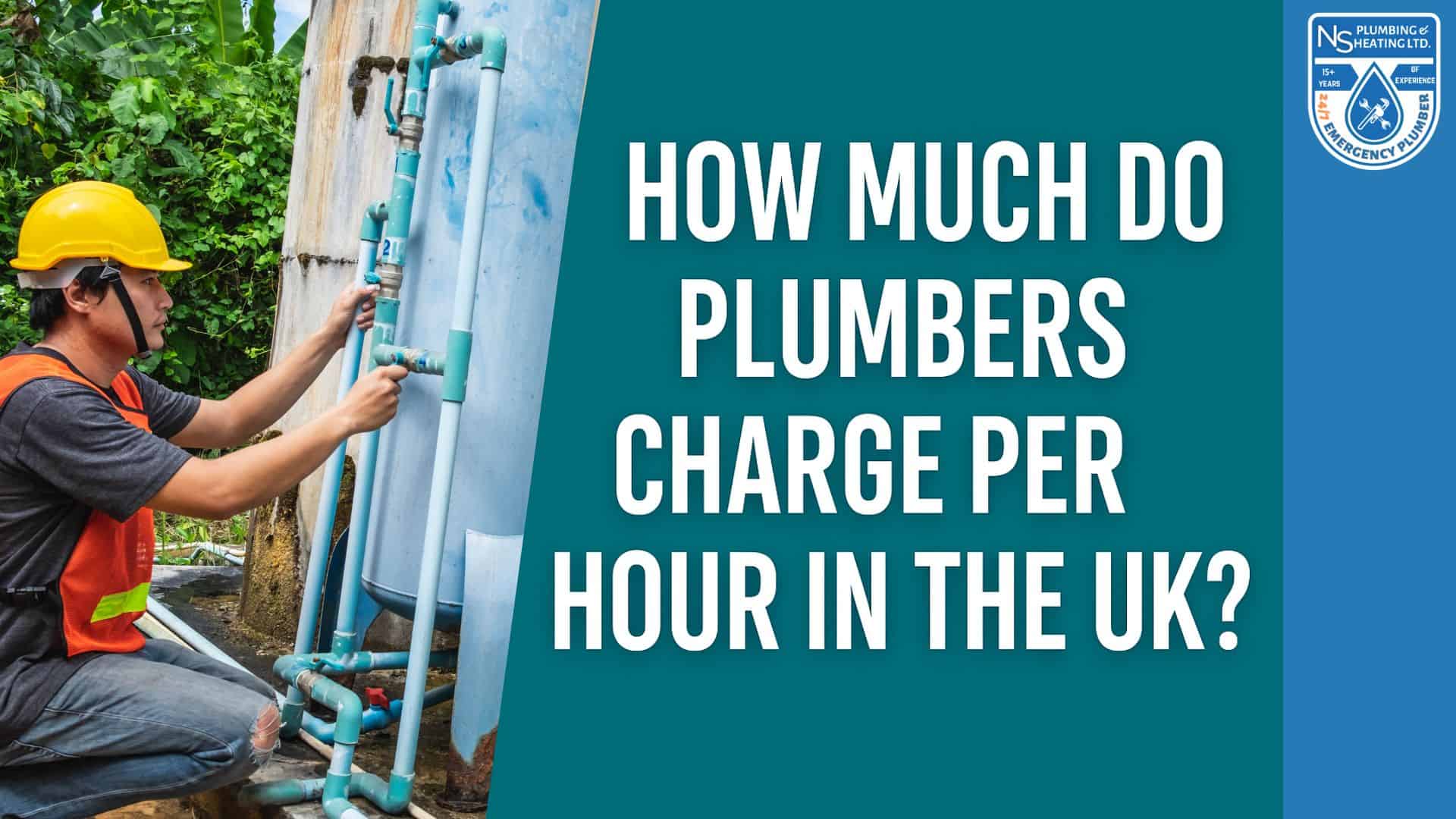


0 Comments